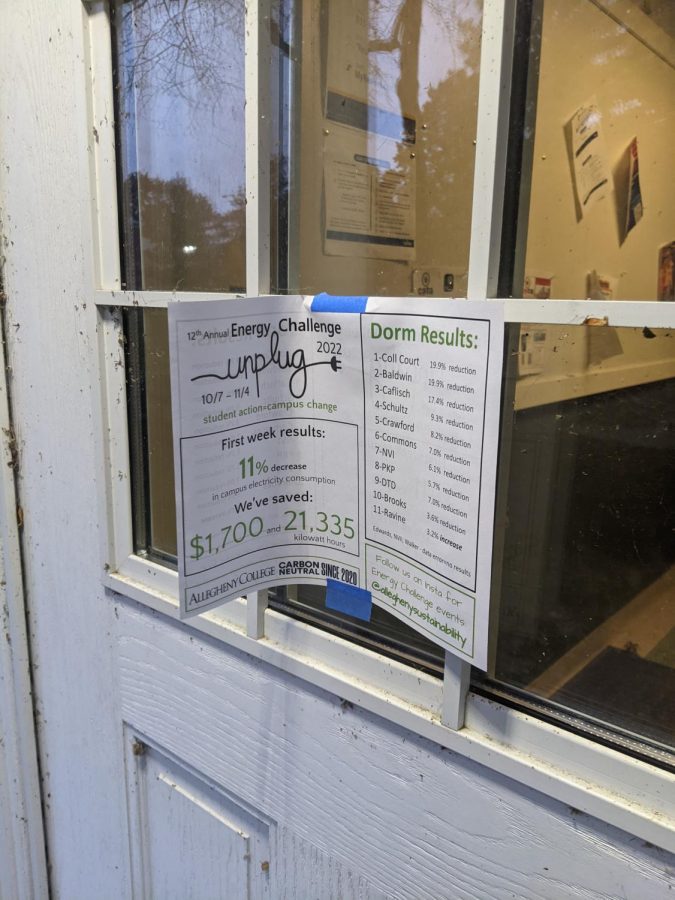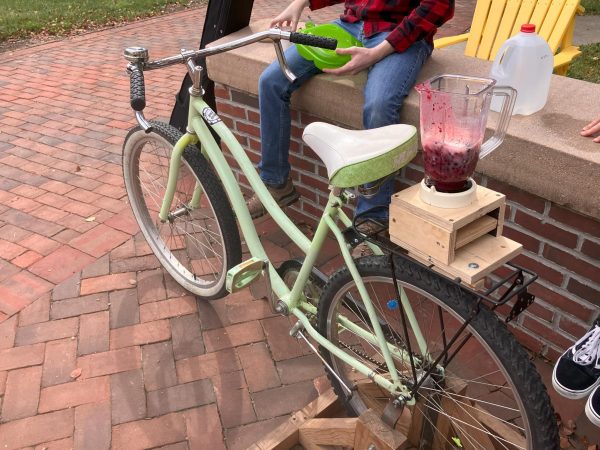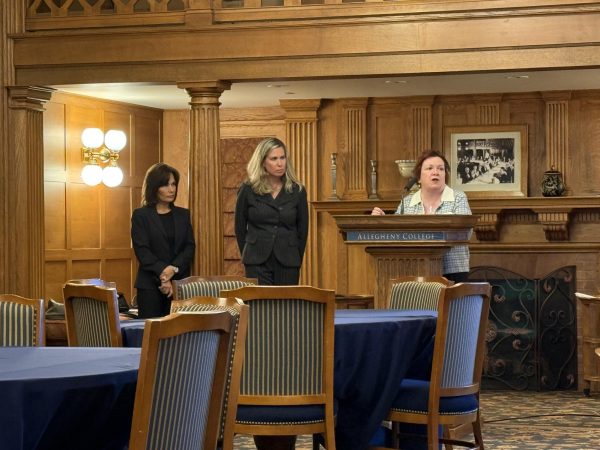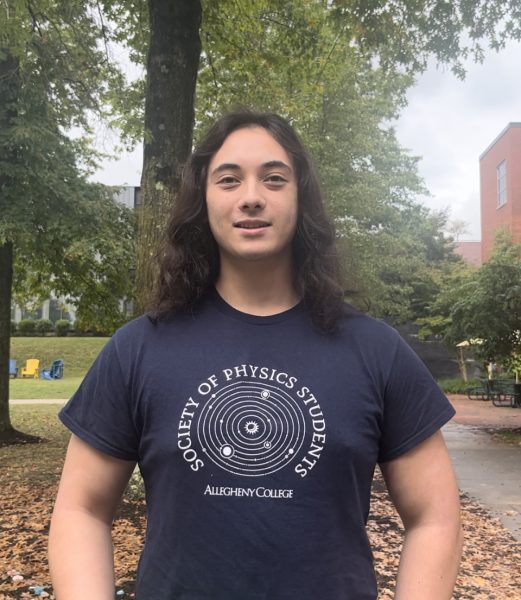12th Energy Challenge underway
An Energy Challenge update from the first week of the event on an entrance to Walker Hall.
The 12th edition of the Office of Sustainability’s Energy Challenge is underway on campus. The challenge began on Friday, Oct. 7, and will conclude on Friday, Nov. 4.
Over four weeks, students are encouraged to be mindful of their energy use as part of the challenge, according to the Director of Sustainability Kelly Boulton, ’02.
“Energy use is monitored by residential buildings and the money saved is reinvested into sustainability initiatives around campus that directly affect the student body,” Boulton said. “The solar panels on (Steffee Hall of Life Sciences) and the automatic water refill stations were all the results of savings from the energy challenge.”
The savings from the Energy Challenge have been significant over time.
“The average amount saved from the challenge over the past 12 years is $7,000,” Boulton said.
The Energy Challenge is a collaboration between the Office of Sustainability, the Environmental Science and Sustainability department, Physical Plant and the student body.
Apart from its goal of saving energy, the Energy Challenge is also a way for the student body to learn more about the issues related to the environment, according to Department Chair and Associate Professor of Environmental Science and Sustainability Beth Choate
Choate said that students in introductory environmental science courses are encouraged to find creative ways of integrating environmental and sustainability awareness within the student body.
“In the past, we have had more class involvement in the energy challenge,” Choate said. “We’ve even encouraged students to do their senior projects that would incorporate the community.”
Although students in environmental science classes are not a part of the Energy Challenge through their classes this year, they are involved via clubs and student-led organizations.
“Students for Environmental Action hosted a mending workshop at Grounds for Change on (Thursday, Oct. 13),” said SEA President Hannah Heutsche, ’23. “We’ll also be hosting a baked potato bowl night on Tuesday, Oct. 25, with potatoes from the Carrden at the Murray fire pit.”
Other events in the Energy Challenge include a candlelit rosary by the Newman Association and a spooky night hike by the Outing Club.
Students also do much of the footwork such as hanging up posters and doing logistical work for events, according to Heutsche.
“The challenge is mostly handled by the office of sustainability but the physical plant handles things such as monitoring savings and consumption,” said Director of Physical Plant Joseph Michael. “We rally our data to the office of sustainability and students use it to provide updates.”
Weekly updates of the Energy Challenge can be found around campus.
Boulton said that providing weekly updates via posters not only informs students about the challenge but also creates a sense of competition between residential buildings.
“The competitive aspect of the challenge serves as a motivator for students to get involved, Boulton said. “You’d be surprised at how much people get into it.”
Boulton believes that everyone should care about the Energy Challenge and that it is not simply an event for environmental science and sustainability majors.
“We are all occupying and contributing to the environment, so it is relevant to us all,” Boulton said. “Over my time at Allegheny, I have seen more and more people become passionate about issues related to the environment.”
The Energy Challenge has a detailed history and has proved effective since its inception in 2010.
“A group of us (from the environmental science and sustainability department) published a paper with data showing the reductions in energy use as a result of the October energy challenge,” Choate said. “We found that the challenge causes energy reduction beyond the month of October.”
Part of the success of the Energy Challenge is the sustainability mission of Allegheny College.
Despite Allegheny’s status as a private liberal arts college and its small student population, it became the eighth college in the nation and the first college in Pennsylvania to become carbon neutral.
Similarly, despite the general increase in the use of electronic devices on college campuses, Allegheny College has consistently reduced its energy consumption during and after the annual Energy Challenge.
“During my time at Allegheny, students would take notes on paper and it was rare for one of us to have a computer,” Boulton said. “Nowadays, it is common for students to take notes on tablets and own multiple devices such as televisions and computers.”
Boulton said that belief in issues concerning the environment has increased over time and is particularly prevalent in current students.
“Our students have always been passionate about environmental issues, but the difference now is that we have more students than ever before who are trained to take action,” Boulton said. “We have students involved in making change by doing real work and they are also encouraged to hold those in positions of power accountable for their neglect of the environment.”
According to Boulton, more faculty members and administrators are also progressively committing to sustainability.
“Instructors involve topics concerning environmental action or awareness consistently in classes,” Boulton said. “This allows students the opportunity to come across something they may truly care about and do their own research.”
Boulton added that the Energy Challenge has come in good time due to the current effects of climate change being felt the world over.
“At this time, it’s getting hotter and colder and many areas of the world are facing severe climatic disasters,” Boulton said. “We can only change this if we hold ourselves accountable and take action.”
As a result, Boulton hopes to enhance student involvement in sustainability initiatives on campus and the community.
A way of doing so is to expand the Energy Challenge beyond the designated month of October in the future, something Boulton said she would be open to in the future.
“The energy challenge is a part of the many initiatives of the office of sustainability,” Boulton said. “I would love to create a general culture of energy saving on campus in the future and make the challenge an ongoing process.”

Hassan Javed is a junior from Lahore, Pakistan. He is majoring in Communication and Media Studies while minoring in Psychology. This is his third year...






